Since its establishment in November 2017, the Department of Educational Psychology of the Faculty of Education has always adhered to internationalization and strengthened cooperation with high-level research institutions abroad. In the first half of 2019, young scholars of DEP concentrated on scientific research, and published 7 papers in SSCI and SCI journals related to educational psychology.

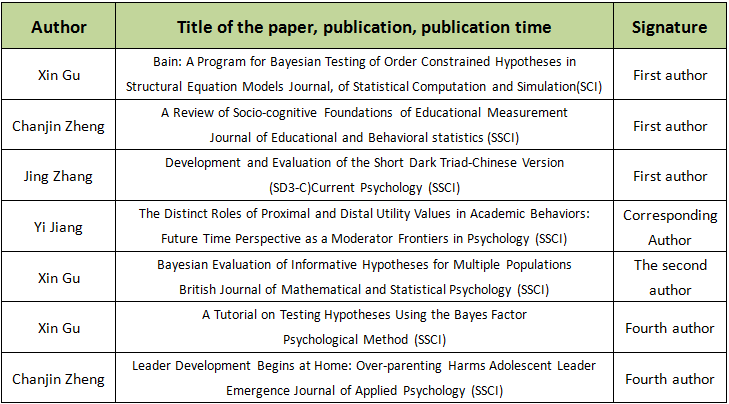


Xin Gu
Zijiang Young Scholar
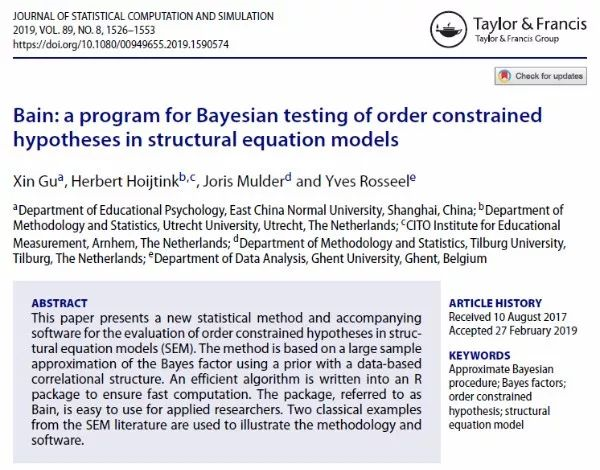
Structural equation model is widely used in psychological researches. This paper presents Bayesian evaluation of order constrained hypotheses in structural equation models. Order constrained hypothesis like mu1>mu2>mu3 often precisely describes the theory or expectation of psychological researchers. Bayesian tests on order constrained hypotheses quantify the evidence from the data to support or not support researchers’ theory. This paper also develops an R package bain to enable researchers to analyze their own data. Two examples with respect to structural equation models are used to illustrate the proposed method and developed software package.

Yi Jiang
Associate Professor
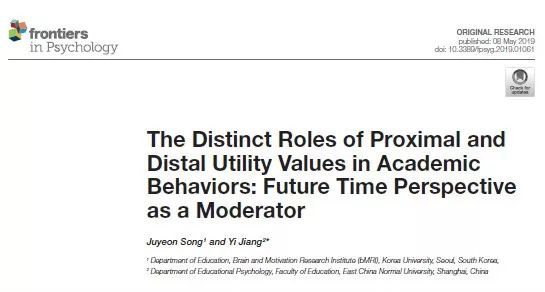
The purpose of this study is to analyze the different predictive effects of recent and long-term utility values on student learning outcomes, and to analyze whether students' future time concepts play a role in regulating these relationships. The results of the study show that the short-term utility value positively predicts the student's future choice intention by reducing the effort cost perception, while predicting the avoidance intention and delay. The long-term utility value does not predict the cost of effort, but directly predicts the student's avoidance intention and delay. However, the negative correlation between long-term utility value and avoidance intention and delay is regulated by the student's concept of future time. This study combines the expectation of value theory with the concept of future time concept to provide new evidence for a more comprehensive understanding of the predictive role of utility value on student learning behavior and outcomes.

Chanjin Zheng
Associate Professor
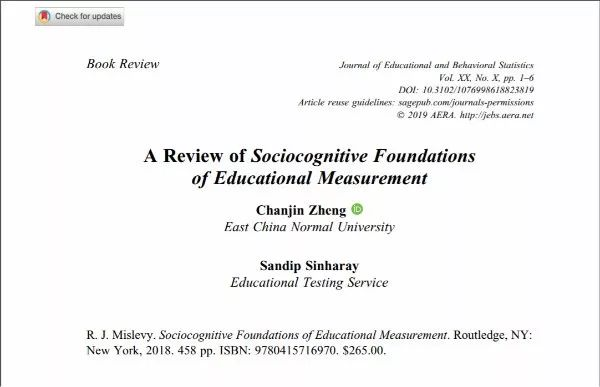
The book "The Social Cognitive Basis of Educational Measurement" is the latest masterpiece of the famous educational measurement expert Robert Mislevy, and is one of the rare theoretical theories in the field of educational measurement. This book has a systematic review of the social cognitive basis of educational measurement technology. Chanjin Zheng, the associate professor in the Department of Educational Psychology, and Sandip Sinharay, the senior researcher of theEducational Testing Service (ETS), were invited to comment on the book. On the basis of summarizing the main contents of this book, this book review introduces the background and significance of the theory of educational measurement social cognition, expounds the book's significant contribution to the field of education measurement, and gives detailed reading suggestions and references bibliography.

Jing Zhang
Full-time associate researcher
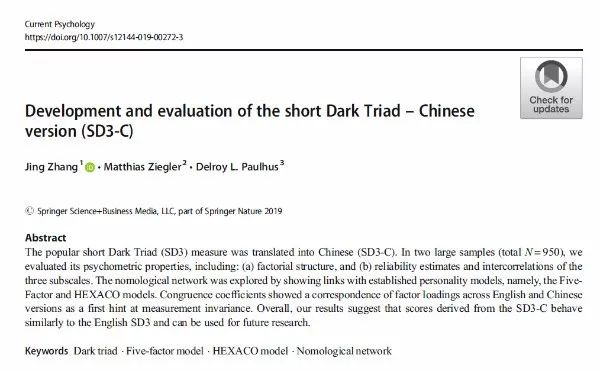
The popular short Dark Triad (SD3) measure was translated into Chinese (SD3-C). In two large samples (total N = 950), we evaluated its psychometric properties, including: (a) factorial structure, and (b) reliability estimates and intercorrelations of the three subscales. The nomological network was explored by showing links with established personality models, namely, the Five-Factor and HEXACO models. Congruence coefficients showed a correspondence of factor loadings across English and Chinese versions as a first hint at measurement invariance. Overall, our results suggest that scores derived from the SD3-C behave similarly to the English SD3 and can be used for future research.
















